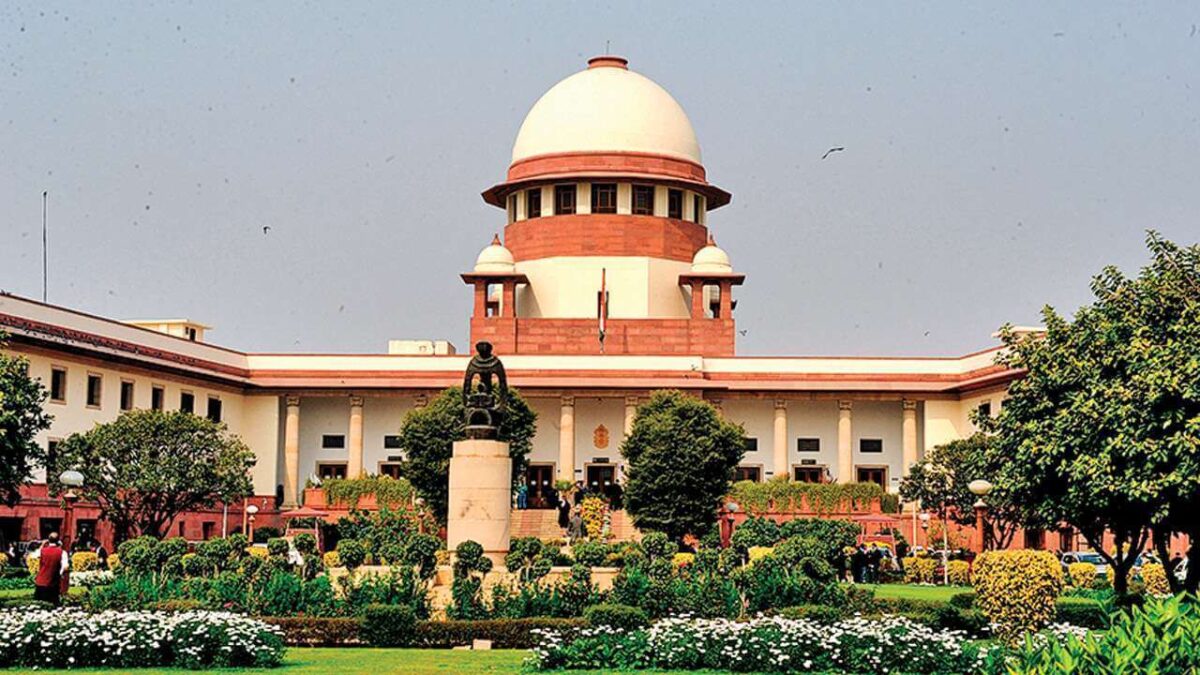YSRCP Moves Supreme Court Over Relaxation of Postal Ballot Norms in Andhra Pradesh. The YSR Congress Party (YSRCP) has escalated its legal battle concerning postal ballot rules to the Supreme Court. On Sunday, the party filed a special leave petition (SLP) challenging the Andhra Pradesh High Court’s recent decision, which denied any interim relief in their case against the new regulations for counting postal ballot votes in the state.
Senior advocate Mahfooz A Nazki filed the petition on behalf of YSRCP. This legal move follows a setback on Saturday when a Division Bench of the Andhra Pradesh High Court, comprising Justice Kiranmayee Mandava and Justice Nyaypathy Vijay, dismissed YSRCP’s plea. The party had argued that the Election Commission of India’s (ECI) amended rules, which permit the validation of postal ballots without the seal of the attesting officer, were prejudicial.
The High Court’s decision on June 1 favored the ECI’s stance, which emphasized that courts should not intervene in the electoral process once it has commenced, unless an election petition is filed post-election. YSRCP argued that the High Court overlooked critical aspects of their petition and ruled on procedural technicalities rather than substantive issues.
The crux of YSRCP’s argument is that the ECI’s relaxation of rules undermines the integrity of the electoral process. According to the new guidelines, postal ballots lacking the attesting officer’s seal but containing their signature are deemed valid, provided these ballots were cast at designated facilitation centers. The ECI justified this change by calling for specimen signatures of attesting officers instead of the previously mandatory seal and designation.
It is important to note that the results of Assembly as well as Parliamentary constituencies are scheduled to be declared on June 4. In the event invalid votes are taken into account, the same is bound to cause grave prejudice to the petitioner (YSRCP),” the petition highlighted.
The plea directs the court’s attention to the procedure governing the casting, verification and counting of postal ballots envisaged under Conduct of Election Rules 1961 and the instructions issued in July 19 last year by the EC read with Form 13A of the 1961 Rules. Rules 23 and 24 prescribe the form in which postal ballot votes are to be processed.
Form 13A is to be signed in the presence of an authorised officer who also has to attest to the signature. The declaration that is duly attested is to be kept in a cover marked as Form 13A. Thereafter, the said officer is necessarily required to put his designation, signature, and seal in the Form 13A.
Rule 54A(4) mandates that an unsigned or unattested Form 13A should be rejected.
“From the above, it is clear that this procedure is sine qua non for a postal ballot to be treated as valid,” the petition said.
Senior Counsel Dr. Abhishek Manu Singhvi, representing YSRCP, contended that the ECI’s modification of statutory norms was erroneous and compromised the election’s fairness. On the other hand, ECI’s senior advocate Avinash Desai defended the relaxed rules, clarifying that they do not apply universally to all postal ballots but are limited to those cast at facilitation centers.
The High Court advised YSRCP to file a formal election petition rather than seeking remedy through writ jurisdiction. “The writ plea is disposed of with liberty to the petitioner to pursue remedies in a properly framed election petition,” the bench stated. This suggests that YSRCP’s concerns could be better addressed through the election petition mechanism post-election.
Adding a layer of complexity, TDP legislator Velagapudi Ramakrishna, who intervened in the High Court proceedings, has preemptively filed a caveat petition in the Supreme Court. This action, undertaken by Supreme Court advocates Guntur Pramod and Raviteja Padiri on behalf of Ramakrishna, ensures that the court hears TDP’s side before passing any interim orders on YSRCP’s petition.
The dispute originated when the ECI relaxed postal ballot norms in Andhra Pradesh. The modifications removed the requirement for the attesting officer’s name and designation to be mentioned in Form 13A, substituting it with specimen signatures of the officers. YSRCP’s petition to the High Court argued that these changes were designed to validate improperly completed postal ballots, thus skewing the election process.
Also Read:
Indian Navy set to Finalize Rafale M Fighter Jet Agreement with France
INDIA Bloc will select PM within 48 hours
Kejriwal seeks Centre’s help as citizens endure a severe water crisis
